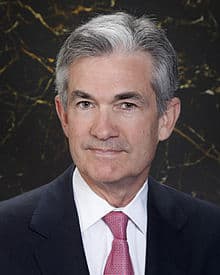
Federal Reserve chairman Jerome Powell
President Trump has been widely criticized for coming out in opposition to further Federal Reserve’s interest rate increases. This supposedly violates the Fed’s independence from political manipulation. The independence of the Fed from politics is something of a myth, however. Furthermore, the Fed cannot help but be responsive to the President’s warning at this juncture, because he controls who gets appointed to four vacancies on the Federal Reserve Board. That gives him power to shape the policies of the Fed if he believes the present board to be unresponsive to his wishes. But both the President and his critics are wrong to quarrel over where interest rates should be set now, or tomorrow, or next year. That should be determined by markets, not politicians or boards of self-proclaimed experts.
The Federal Reserve since its inception in 1914 has proven incapable of keeping the economy on a straight keel for more than a few years at a time. Instead we have a history of boom-bust cycles typically caused by the Fed setting monetary conditions too loose, e.g., by low interest rates, and then, when inflation breaks out and asset bubbles inevitably appear, too tight, either by jacking up short-term interest rates or severely restricting the money supply.
Right now the Fed is repeating the old nonsense with a new twist: it is not only manipulating short-term interest rates, it has also been practicing since 2008 a much more foolish policy — paying interest on banks’ holdings of excess reserves with the Fed. This gives the banks an incentive to just park those excess reserves with the government for a guaranteed return rather than investing the funds in the productive economy — by making loans to businesses. Practiced from 2008 on, it also severely restricted the money supply just when the opposite was called for.
President Trump and the congressional committees that regulate the Fed should be overhauling the Fed so that it sets the money supply on an even keel by keying it to a stable percentage of nominal gross domestic product (NGDP). This would go a long way toward eliminating the monetary causes of boom-bust cycles.
Click here to go to the previous Founders Broadsheet (“New Trump tariffs on $200 bn. of Chinese imports will hit US consumers directly”)

Leave a Reply